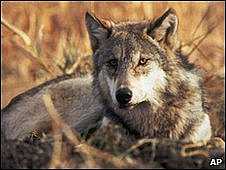German Chancellor Angela Merkel has arrived in Turkey for an official visit overshadowed by disagreements over Ankara’s plans to join the EU.

Mrs Merkel opposes full EU membership for Turkey, which began negotiations to become a member in 2005.
There are also disagreements over the education of Turkish children in Germany in the Turkish language.
Germany is Turkey’s biggest trading partner, and nearly three million Turks live in Germany.
Turkey’s sometimes fraught relationship with the European Union won’t be helped by this visit.
After months of avoiding the subject, Chancellor Merkel has chosen this moment to revive her idea of offering Turkey what she calls a privileged partnership with the EU, rather than full membership.
Mrs Merkel has stressed that she does see integration as possible in up to 28 of the 35 so-called chapters of EU law with which Turkey has to comply before it can become a full member of the union.
But her proposal has been firmly rejected by the Turkish government as a breach of the terms agreed when membership negotiations began five years ago.
‘Insulted’
“Such a thing as privileged partnership does not exist,” said Egemen Bagis, Turkey’s minister for European affairs.
“So we do not take that option seriously because there is no legal foundation of it. At times I feel insulted for being offered something which does not exist.”
The chancellor does have plenty of other topics to discuss here, including Iran’s nuclear programme.
Turkey has recently strengthened its relations with Iran and opposes the tougher sanctions threatened by Western governments.
But their differences over EU membership will cast a shadow over any common ground they do find during this visit.
BBC





